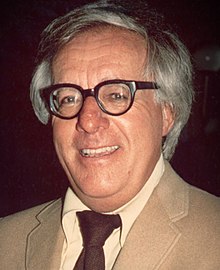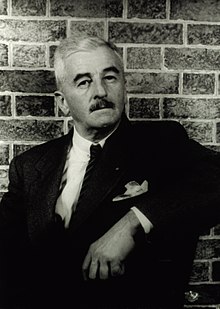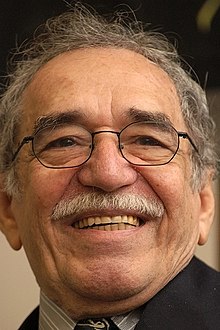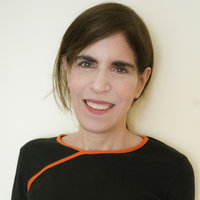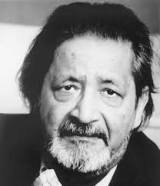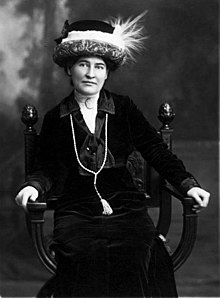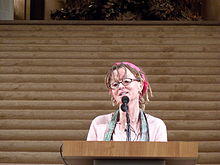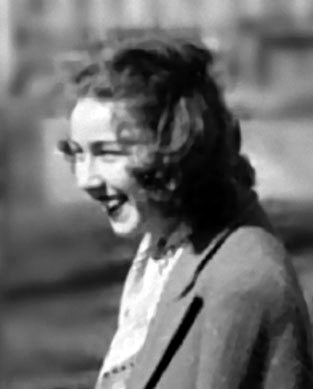A quest narrative is one of the oldest and surest ways of telling a story. The Odyssey is essentially a quest narrative, with Odysseus’s journey back to his wife and son serving as the basis for the quest. Since then there have been thousands of quest narratives written, including King Arthur and the Knights of the Roundtable, detective stories, Moby Dick, and many others. I’ll be teaching a writing class on the Quest Narrative today at the Write on the Sound Conference in Edmonds, WA. Please stop by to say hello!
Tag: writing courses
Baptism by Whitewater: Running the Salmon River

One of the pleasures of my job includes doing “research” such as my recent trip down the Middle Fork of the Salmon River in Idaho. I had a wonderful trip organized by Solitude Rafting Company of Ketchum and wrote about it for a story in the latest issue of Mountain Gazette, with the link included below. As I tell the students in my Seattle writing classes, travel writing classes and online writing classes, such trips are full of the rich and significant detail that make for great scenes and great stories. Here’s a link to the story; please let me know what you think: Baptism by Whitewater: Running the Salmon River
Rafting the Salmon River
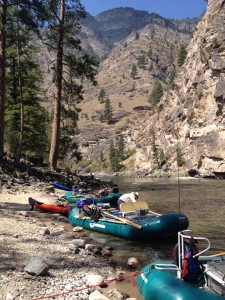
It’s a rock dodge. I point the red 9-foot kayak toward Orelano Rapid on the Middle Fork of the Salmon River in Idaho. The rapid is rated a III (on a scale of I – VI, from easy to hazardous), putting it at the limit of my abilities as a kayaker. Earlier rapids have boosted my confidence, but I hope they haven’t lulled me into a false sense of security.
I enter the rapid on the right, weaving past one rock and then another, relishing the feeling of dashing through the boiling cauldron. A boulder looms ahead. I glide past it, but overcompensate, turning my kayak to the side. The current smashes it against a large boulder, high-centering it on the top. I dig on the paddle, trying to free it.
As I try to shove off, the current catches the underside of the kayak, flipping me into the drink. The water is cold, fast, and powerful. I clutch the boat and pin the paddle between my knees. The river surges past me, threatening to knock me over. I remember the guide’s advice about staying calm, facing down river and releasing the boat if necessary, but I keep fighting and drag it over to the bank. Taking a moment to catch my breath, I assess the situation…
For more, check back in when I know where I’ll publish it.
There’s still room in the fall writing class, Revising Your Life. For more, take a look at my website.
Icons of Outdoor Adventure Story
Take a look at my story in the July edition of Alaska Airlines Magazine, Icons of Outdoor Adventure, including some great quotes and photos from the recent Dawn Wall climb.
Writing for Story
There’s still room in my summer class, Writing for Story. I’ll include a course description below:
Writing for Story: Summer Creative Writing Class
This summer I’ll offer a Creative Writing Seminar entitled “Writing for Story: How to Recognize, Organize and Write Narratives.” This course will demonstrate how to heighten conflict and resolution in fiction and nonfiction, greatly enhancing the readability and publishability of the finished piece. You’ll receive detailed, constructive criticism of your fictional and nonfictional stories and book chapters. In addition, we’ll discuss dramatic scenes, outlines, cover letters, and other topics of interest to you.
The course will run June 17 to July 29 on Wednesday evenings from 7 to 9 p.m. and one Monday evening June 22 in Room 221 of the Good Shepherd Center in Seattle’s Wallingford neighborhood (4649 Sunnyside Avenue North).
In addition to the classroom work, I will schedule individual conferences with each student. This will give me a chance to go over your story or book with you one-on-one and suggest ways to improve it. There will be six assignments: a 150- to 250-word story idea or book concept statement, a 250-word in medias res dramatic scene, a 25-word outline of your story, a 1500- to 2500-word story or book chapter and its revision, and a cover letter for your story or book. The cost will be $625 per person. Texts: Writing for Story by Jon Franklin; The Art of Fact edited by Kevin Kerrane and Ben Yagoda. Both titles are available at the Elliott Bay Book Company.
To enroll, please send me check for $625 to 201 Newell St., Seattle, WA 98109. Enrollment is limited to 15. For more information, contact me.
Revising Your Life: Turning True Events into Compelling Stories
There are still a couple spots left in my fall class for The Writer’s Workshop. Let me know if you’d like to sign up!
Revising Your Life: Turning True Events into Compelling Stories
It may happen in the shower. On the way to work. Taking a crowded elevator. Suddenly a story idea seizes you. You must write it down! You find a pen and piece of paper, plunge into the story, and write nonstop until you finish a first draft. You put it aside. A day goes by. Two days. You pick it up again. Sure there’s some good stuff there, but the rest of it is, well, less than perfect.
If you’re like most writers, you put the material in the drawer and hope someday to get around to finishing it. How do you push beyond the messy first draft most writers produce to craft a compelling story or book chapter? This eight-week class in nonfiction and fiction will show you how to make that happen. You’ll learn essential techniques of research, interviewing, writing scenes, character sketches, structuring, revision, and how to put the finished manuscript into the hands of the right editor.
The course will run Oct. 15 to Dec. 3 on Wednesday evenings from 7 to 9 p.m. in Room 221 of the Good Shepherd Center in Wallingford (4649 Sunnyside Ave. N.)
There will be six assignments, including a 150-word story idea, a 250-word research assignment, a 250- to 500-word dialogue exercise, a 1000- to 1500-word first person story, a revised first person story, and a 250-word cover letter. In addition to the classroom work, I will schedule individual conferences with each student. This will give me a chance to go over your work with you one-on-one and suggest ways to improve it.
Texts: Anne Lamott’s Bird by Bird, and Best American Essays of the Century edited by Joyce Carol Oates. Both titles are available at the Elliott Bay Book Company, 206-624-6600.
To enroll, please send me check for $600 to 201 Newell St., Seattle, WA 98109 or you can pay with a credit card through the paypal link on my website. Enrollment is limited to 15. For more information, contact me.
Avoiding Writer’s Block
One of the best things about writing for a daily newspaper is that it either permanently cures you of writer’s block, or it convinces you to pursue another profession.
When I worked on the Ellensburg Daily-Record, a small daily in eastern Washington State, I had to cover a wide variety of topics, not all of them especially captivating–the Ellensburg Rodeo, the Kittitas County Weed Board, country and western concerts, and an eccentric old lady who won the Halloween Contest by dressing up in a dog food bag.
After dutifully taking notes, I’d return to the newspaper office and knock out a story, whether I felt inspired or not, whether I’d just come down with a cold or was having a bad day. I arrived at the office at 7:30 a.m. and turned in my story by 11:30 a.m.–12 at the latest. There were no exceptions.
If it looked as if I might miss my deadline, the editor, Bill Lipsky, would pace around my desk. Lipsky, or “the Lipper,” as we called him, was thin and wiry with a long pointed face like a wire-haired terrier. He ripped sheets of paper off the A.P. wire machine and carried them around the newsroom in his mouth. As he approached my desk, he’d growl if he didn’t think I was working fast enough. I learned to get the story in on time.
It frustrated me if I didn’t have time to perfect my story, but the discipline of getting the damn thing done was invaluable. There simply wasn’t time to dawdle. I had to blaze away for four hours, pouring everything I had into the piece. I wouldn’t leave my sweaty little naughahyde chair with the broken back rest until I had the story wrapped.
During the time I worked there, I developed a method for quickly organizing and composing stories. It was the only thing that allowed me to survive with my love for writing intact. I developed this method by trial and error, mostly by error. Early on, like most neophyte writers, I would obsess about the lead, spending three or more hours on it. As the deadline approached, I had less than an hour to finish the rest of the story.
I needed to find another way. I discovered that if I postponed my instinct toward perfectionism to later in the writing process I could produce a better story. First, I got black on white, quickly typing up the rough draft, then I went back over it and tinkered with it. The key to avoiding writer’s block and the Lipper’s wrath was postponing perfectionism.
Over time, I refined this technique. I would arrive at the office, organize my notes, find an angle around which to structure the piece, and then type away. After finishing the rough draft, I would go back and polish it from the lead forward. By postponing my inclination toward perfectionism to the end of the process, I was able to turn in a stronger piece.
For a more in-depth look at the writing process, please consider signing up for the Fall Writing class. For more, see the course description at www.thewritersworkshop.net.
Fall Writing Retreat
FALL 2013 WRITING RETREAT AT ICICLE CREEK CENTER
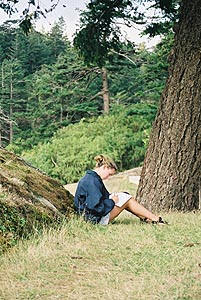
You will utilize writing practice techniques to generate an entire rough draft of your story in several hours. By the end of the weekend (Sept. 27-29) you will have your piece finished and the polishing process well in hand.
You will learn craft techniques, including starting in the middle of the action to ensure a captivating lead, that would otherwise require weeks of coursework to assimilate.
You will learn secrets of how to prepare the piece for the market and how and where to send it.
The Friday (Sept. 27) session 4 to 6 p.m. will include an introduction to the course and dinner at the inspiring Icicle Creek Center for the Arts outside Leavenworth and a 7 p.m. reading/ slide show at the nearby Wenatchee River Institute (347 Division Street, Leavenworth, WA 98826.). The Saturday (9 to 4) and Sunday (9 to noon) sessions will be held at the center’s Canyon Wren recital hall, a peaceful, beautiful place designed to enhance our creative work together.
The course fee will be $425 per person double occupancy, $400 triple occupancy, $500 single occupancy, or $325 for meals but no lodging. The fee includes two nights lodging, four meals, and expert writing instruction.
To enroll, please contact Nick. The course is limited to 15 participants and will likely fill quickly.
Great Writing Advice from John Steinbeck
The Writer’s Workshop Blog highlights my adventures teaching writing classes, Seattle writing classes, writing stories, articles and books, leading travel, food and wine writing classes to France and Italy, traveling the globe, promoting my books including the novel, The Storms of Denali, and other aspects of the wild and crazy world of writing and publishing. Writing and publishing are changing enormously and I hope this blog will help keep you up to date on some of the changes.
Six Tips on Writing from John Steinbeck
by Maria Popova
John Steinbeck — Pulitzer Prize winner, Nobel laureate— with six tips on writing, culled from his altogether excellent interview it the Fall 1975 issue of The Paris Review.
- Abandon the idea that you are ever going to finish. Lose track of the 400 pages and write just one page for each day, it helps. Then when it gets finished, you are always surprised.
- Write freely and as rapidly as possible and throw the whole thing on paper. Never correct or rewrite until the whole thing is down. Rewrite in process is usually found to be an excuse for not going on. It also interferes with flow and rhythm which can only come from a kind of unconscious association with the material.
- Forget your generalized audience. In the first place, the nameless, faceless audience will scare you to death and in the second place, unlike the theater, it doesn’t exist. In writing, your audience is one single reader. I have found that sometimes it helps to pick out one person—a real person you know, or an imagined person and write to that one.
- If a scene or a section gets the better of you and you still think you want it—bypass it and go on. When you have finished the whole you can come back to it and then you may find that the reason it gave trouble is because it didn’t belong there.
- Beware of a scene that becomes too dear to you, dearer than the rest. It will usually be found that it is out of drawing.
- If you are using dialogue—say it aloud as you write it. Only then will it have the sound of speech.
Great Advice on Writing from Anne Lamott
The Writer’s Workshop Blog highlights my adventures teaching writing classes, Seattle writing classes, writing stories, articles and books, leading travel, food and wine writing classes to France and Italy, traveling the globe, promoting my books including the novel, The Storms of Denali, and other aspects of the wild and crazy world of writing and publishing. Writing and publishing are changing enormously and I hope this blog will help keep you up to date on some of the changes.
I had a great idea for a new book, although come to think of it, maybe it is just a Facebook post. But it would be called Pre First Draft, and address the way we suit up and show up to be writers, artists, and general tribal-two-stomp creative types.
I think it would begin with an admonition: if you used to love writing, painting, dancing, singing, whatever, but you stopped doing it when you had kids or began a strenuous career, then you have to ask yourself if you are okay about not doing it anymore.
If you always dreamed of writing a novel or a memoir, and you used to love to write, and were pretty good at it, will it break your heart if it turns out you never got around to it? If you wake up one day at eighty, will you feel nonchalant that something always took precedence over a daily commitment to discovering your creative spirit?
If not–if this very thought fills you with regret–then what are you waiting for?
Back in the days when I had writing students, they used to spend half their time explaining to me why it was too hard to get around to writing every day, but how once this or that happens–they retired, or their last kid moved out–they could get to work.
I use to say very nicely, “That’s very nice; but it’s a total crock. There will never be a good time to write. It will never be easier. If you won’t find an hour a day now, you won’t find it then.”
It’s the same belief as thinking that once you lose weight, you’ll begin to feel good about yourself. No, you won’t. If you’re not okay with yourself at 185 pounds, you’re not going to be okay at 140. It’s an inside job.
How do you begin? The answer is simple: you decide to. Then you push back your sleeves and start writing–I.e., scribbling words down on paper, or typing at a computer. And it will be completely awful. It will be unreadable shit! You won’t have a clue how it account to anything, ever. And to that, I say, Welcome. That’s what it’s like to be a writer. But you just do it anyway. At my church, we sing a gospel song called, “Hallelujah anyway.” Everything’s a mess, and you’re going down the tubes financially, and gaining weight? Well, Hallelujah anyway.
So you decide to get back to work creatively, and you write up some thoughts or passages or memories or scenes. Then what? Then you write some more. Everywhere you go, you carry a pen, and take notes–ideas will start to come to you. You’ll see and overhear and remember things that you want to include in this mysterious quilt you’re putting together, so you jot them down. Imagine a rag-bag guy who lives inside you, who collects images, descriptions, holy moments, snippets of funny conversation, for you to use in your writing–but he doesn’t have any hands, and needs you to help him amass the rags with which you can make squares for the quilt.
That’s all you have to do today: pay attention–being a writer is about paying attention. Stop hitting the snooze button. Carry a pen with you everywhere, or else God will give me all these insights and images that were supposed to go to you. Hang up a shingle on the inside of you: now open for business. Wow! You won’t have to wake up at 70, aching with regret that you threw your creative essence under the bus. And if you already are seventy, then you won’t have to wake up at eighty, confused and in despair about how you let your gift slip away. Because you will have been writing–or dancing again, or practicing recorder–every single glorious, livelong, weird, amazing day.
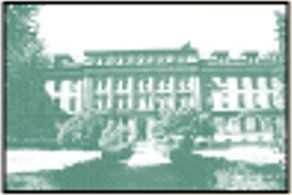 The Writer's Workshop
The Writer's Workshop 